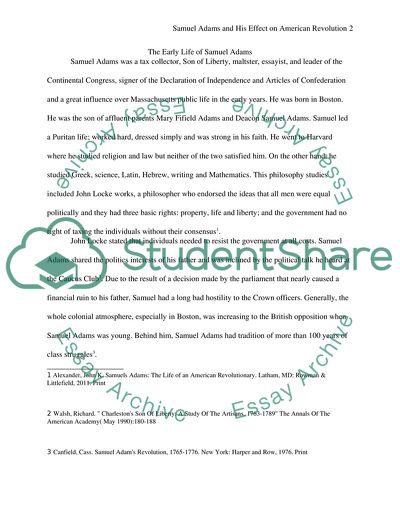Cite this document
(Samuel Adams and His Effect on American Revolution Assignment Example | Topics and Well Written Essays - 2250 words, n.d.)
Samuel Adams and His Effect on American Revolution Assignment Example | Topics and Well Written Essays - 2250 words. https://studentshare.org/history/1822059-samuel-adams-and-his-effect-on-american-revolution
Samuel Adams and His Effect on American Revolution Assignment Example | Topics and Well Written Essays - 2250 words. https://studentshare.org/history/1822059-samuel-adams-and-his-effect-on-american-revolution
(Samuel Adams and His Effect on American Revolution Assignment Example | Topics and Well Written Essays - 2250 Words)
Samuel Adams and His Effect on American Revolution Assignment Example | Topics and Well Written Essays - 2250 Words. https://studentshare.org/history/1822059-samuel-adams-and-his-effect-on-american-revolution.
Samuel Adams and His Effect on American Revolution Assignment Example | Topics and Well Written Essays - 2250 Words. https://studentshare.org/history/1822059-samuel-adams-and-his-effect-on-american-revolution.
“Samuel Adams and His Effect on American Revolution Assignment Example | Topics and Well Written Essays - 2250 Words”. https://studentshare.org/history/1822059-samuel-adams-and-his-effect-on-american-revolution.


